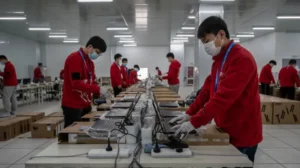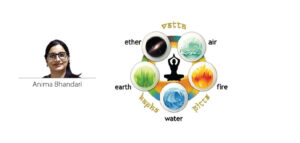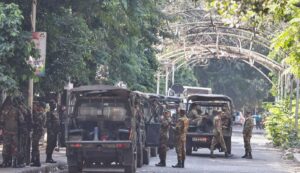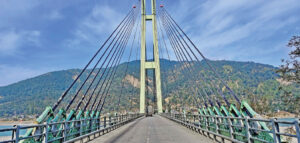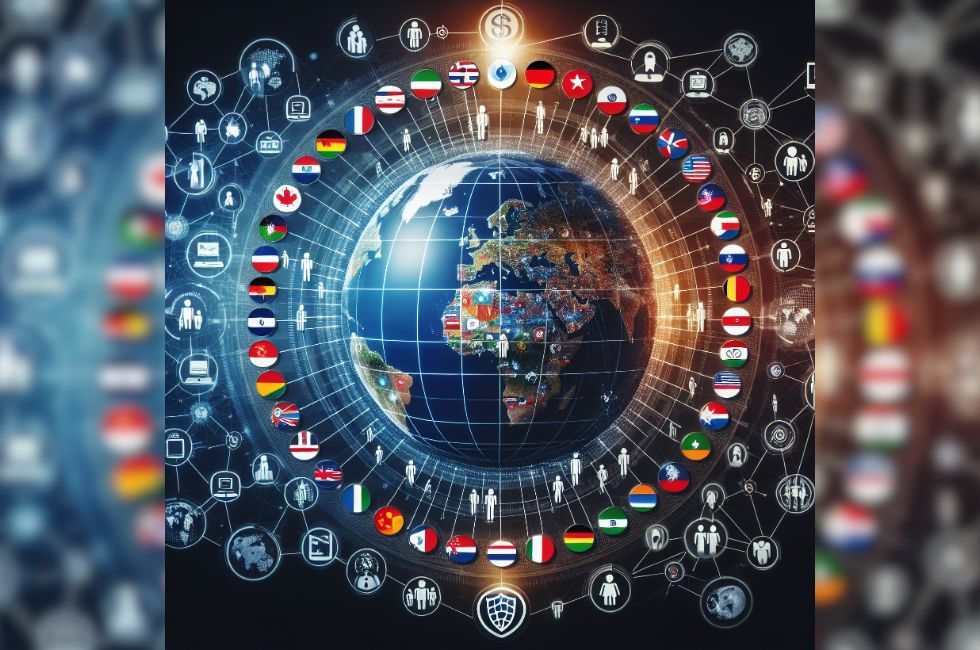
Digital strategy, fueled by social media and real-time instruments, has revolutionized worldwide relations by cultivating openness, open support and coordinate pioneer engagement with worldwide groups of onlookers. In any case, this move too presents challenges like cybercrime and the spread of misinformation.igital diplomacy” (or “e-diplomacy” or “cyber diplomacy”), alludes to ambassadors and governments utilizing computerized advances to accomplish conciliatory targets and conduct worldwide relations. Over the globe, the dialect of advanced strategy is advancing. Germany’s vernetzte Diplomatie (“networked diplomacy”) sits nearby Denmark’s “techplomacy” and the French concept of diplomatie numérique (“digital diplomacy”). All these terms incorporate open strategy, emergency communication and reciprocal and multilateral transactions through computerized channels.The Truth Almost Computerized Diplomacy.
The computerized insurgency has on a very basic level reshaped strategy. It modified how states and universal on-screen characters lock in. Customarily, misty political endeavors depended on face-to-face intuitive. The appearance of online apparatuses and stages, especially social media, has introduced in an time of improved openness and open support. These advanced roads enable pioneers and ambassadors to communicate specifically with worldwide audiences.
Notwithstanding, computerized discretion is not without challenges. Cybercriminals and purveyors of deception undermine the astuteness of discretionary communications. The nonappearance of comprehensive universal lawful systems overseeing the internet makes a tricky environment.
Communication advances changed discretion from weeks to minutes
Early discretion required negotiators to travel for face-to-face gatherings. Medieval ministers traveled weeks to reach goals, regularly through unsafe regions. These emissaries, like the spearheading Venetian negotiators, lived overseas for coherence in outside relations. Division from countries implied intermittent contact and restricted decision-making. Sending and accepting messages took time, deferring transactions and remote policy.
In the 15th century, the printing press changed get to to and the spread of data, counting political archives. Johannes Gutenberg’s development in 1440 permitted quick and cheap book and flyer generation. This implied more extensive accessibility of printed materials. The printing press moreover made strides chronicled record-keeping, permitting ambassadors to reference past assentions. Speedier generation and conveyance of reports encouraged smoother communication between ambassadors and their governments.
The 19th-century development of the transmit assist changed remote arrangement and worldwide relations. Samuel Morse‘s advancements in the 1830s and 1840s permitted messages to travel long separations in minutes, not days or weeks. This was apparent amid the American Gracious War, when President Abraham Lincoln utilized the transmit to communicate with officers, controlling military methodology. In discretion, the transmit permitted real-time coordination between governments and agents overseas. This moved forward remote policy’s accuracy and viability. Amid the Franco-Prussian War (1870–1871), transmits played a vital part in conciliatory maneuvers driving up to and taking after the conflict.
The 20th century saw encourage progressions with the phone. It empowered coordinate interaction and quicker arrangements. Building on Alexander Graham Bell’s 1876 development, the phone systems of the 20th century changed communication by permitting real-time discussion over long separations. The telephone’s affect on discretion got to be clear amid World War I, when it encouraged coordination among United powers.
The Ruddy Phone, a hotline between the White House and the Kremlin, permitted coordinate and quick communication between US President John F. Kennedy and Soviet Head Nikita Khrushchev amid the Cuban Rocket Emergency in 1962, playing a crucial part in deescalating that atomic standoff. This capacity to bestow and arrange right away assist sped up decision-making and permitted for more responsive political engagements. Furthermore, radio and tv brought the open into discretion, including a societal measurement to universal relations. US President Franklin D. Roosevelt’s fireside chats utilized radio to communicate specifically with and console the American public.
Digital devices changed discretionary practices
Transitioning into the late 20th and early 21st centuries, the advanced transformation changed strategy. The web and mail brought phenomenal network and promptness in communication. Amid the 1990s, e-mail supplanted conventional political cables, permitting negotiators to trade records, examinations and informational in genuine time, in any case of area. This change is apparent in verifiable occasions. The arbitrators of the 1995 Dayton Concurs depended intensely on mail for real-time communication between ambassadors from the US, Europe and the warring parties in Bosnia. This time stamped the starting of advanced strategy, where speed and breadth of data trade permitted for more modern political methodologies.
As the 21st century created, social media stages encouraged strategy by presenting open strategy and real-time engagement with residential and remote groups of onlookers. A prime illustration of this affect is the Middle easterner Spring, a arrangement of pro-democracy uprisings that started in December 2010 in Tunisia and spread quickly over the Center East and North Africa. Social media stages like Facebook and Twitter played a basic part in these occasions. Activists utilized social media to organize dissents, share data that bypassed state-controlled media and record human rights abuses.
During the Egyptian transformation in 2011, live streams on social media stages like Al Jazeera appeared the scale of dissents and the viciousness utilized by specialists, galvanizing universal bolster for the assessed 2 million demonstrators in Tahrir Square. Social media too permitted for real-time communication and coordination among protestors. This empowered them to adjust their strategies and react rapidly to government activities. Hashtags like #Egypt and #Jan25 got to be reviving cries, joining together millions over the region.
The #BlackLivesMatter development in 2020 utilized social media to raise mindfulness of racial bad form, starting universal discussions and constraining governments for change. This illustrates how social media can increase marginalized voices and impact worldwide plans. So also, youth activists like Greta Thunberg utilize social media stages like Twitter to mobilize millions around the world for climate activity . Social media permits them to bypass conventional media watchmen and interface specifically with a worldwide audience.
Governments use social media as a capable apparatus to shape open supposition and worldwide exchange. This bypasses conventional media and permits for coordinate advancement of their accounts. Chinese negotiators effectively utilize stages like Twitter to thrust China’s message and counter feedback. Western media has named this strategy Wolf Warrior Discretion, referencing a prevalent Chinese activity film. This term reflects China’s emphatic outside arrangement and its approach to outside media. In 2020, Chinese negotiators on Twitter countered feedback of China’s dealing with of COVID-19. They debated allegations of postponed announcing by indicating to early notices issued by Chinese specialists. Also, they shared recordings exhibiting China’s quick development of restorative offices to counter claims of a moderate response.
In differentiate, nations like South Korea use social trades like K-pop to develop positive universal estimation and venture a milder picture. The Korean Wave, a worldwide wonder driven by K-pop music and dramatizations, has gathered universal intrigued in Korean culture.
Furthermore, progressed communication advances like video conferencing encourage face-to-face gatherings without travel, sparing time and assets. Secure video conferencing stages played a imperative part amid the Iran Atomic Bargain Arrangements (2013–2015). It encouraged secret and proficient communication between Iranian and Western moderators in spite of the profound political doubt established in the 1979 Iranian Transformation, the Iran-Iraq War (1980–1988) and Western concerns over Iran’s atomic program.
Video conferencing moves forward effectiveness and decreases the carbon impression of discretion. The World Financial Gathering gauges that video conferencing can decrease trade travel outflows by up to 80%, a noteworthy commitment in the battle against climate alter. In 2020, the G-20 leaders’ summit, ordinarily a face-to-face occasion including over 30,000 members, effectively transitioned to a virtual organize due to the pandemic.
How cyberattacks have ended up more modern and destructive
Cyber dangers have detonated in the past 20 a long time. Culprits have extended from trivial scammers to huge organizations advertising cybercrime as a benefit. Take the 2007 cyberattack on Estonia, accepted to be Russian in beginning. This assault disabled the country’s keeping money, media and government systems. More as of late, the 2021 SolarWinds supply chain assault compromised broadly utilized computer program globally.
The 2021 Colonial Pipeline ransomware assault by DarkSide represents the scale and affect of cutting edge cybercrime. This assault caused fuel deficiencies and cost climbs over the eastern Joined together States. This underscores the pressing require for universal collaboration on defense procedures, risk insights sharing and holding assailants accountable.
The Joined together Countries, in reaction to the developing danger of cybercrime, set up the Gather of Legislative Specialists (UNGGE) in 2004. This group’s mission was to make clear standards for mindful behavior by nations in the internet. Through a arrangement of persuasive reports discharged in 2010, 2013, 2015 and 2021, the UNGGE laid out these standards. These reports emphasize that countries ought to not utilize data and communication innovations (ICTs) for illicit exercises. The 2015 report particularly called on states to maintain a strategic distance from conducting or supporting any ICT action that seem harm basic infrastructure.
In 2019, the UN took a proactive step against cybercrime by building up an Open-Ended Advertisement Hoc Committee (AHC). This committee’s mission is to draft a comprehensive worldwide tradition particularly centered on cybercrime. In spite of confronting challenges, the committee has made noteworthy advance. Outstandingly, the committee’s gatherings in Walk 2021 centered on vital angles like universal participation, capacity-building and guaranteeing the assurance of human rights inside the setting of cybercrime
Read Related,.
Assembly between Prime Serve Rana and Official Executive of UN Women

